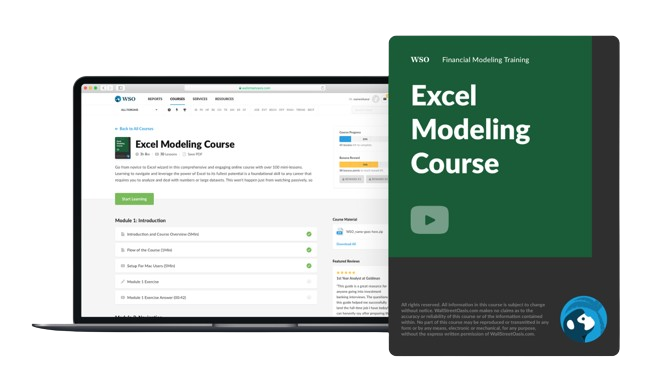Rational Expectations
It affirms that an individual's decisions or choices are associated with their interests and are based on calculations of personal targets and limited knowledge.
Rational expectations theory is a concept in macroeconomics that affirms that an individual's decisions or choices are associated with their interests and is based on calculations of personal targets and limited knowledge.

This theory states that most people base their decisions on three key factors: past experiences, available information, and human rationality.
Most of the time, these rational calculations are performed to amplify self-interest. The rational theory makes it clear that, by applying this theory, people tend to avail more incredible benefits on a personal scale.
In economics, it is the preference and choices of people that can change the economy's outlook in the future compared to how it is today.
This theory diverges from the perception that government policies are solely responsible for the changes in financial and economic scenarios.

It also implies that an individual understands government functioning, policies, market factors, economic funnel, and more.
Moreover, thus, rational actors or individuals cant be deceived by the government or international subjugations of discriminatory practices, arcane policies, or clauses. Nevertheless, this excellent conceptualization often calls for criticism of this theory.
Understanding Rational Expectations Theory
Rational expectation theory is the mother of many economic assumptions and other theories structured by established economists.

Let us understand the key factors involved:
Rational actors
They are one of the primary factors and the potential individuals of an economy whose decisions can change the economic outlook.
They form the primary base of the financial funnel, as these individuals actively amplify their self-interests and try to maximize benefits and minimize potential losses.
This factor provides common ideation for the assumptions and perception of how society generally behaves, marking rationality as its core.
Invisible Hand and Self-interest
Adam Smith came up with the critical factor of the rational expectation theory; the invisible hand.
His book 'An Inquiry into the Nature and Causes of the Wealth of Nations, 1776' provides the fundamentals and offers a brief explanation of self-interest and the invisible hand.

As the word 'Invisible' remarks to something unseen, thus the term 'Invisible Hand' refers to the invisible factors that drive a market and affect the economy. The central assumption of the invisible hand theory is self-interest.
No negative aspect of self-interest is tackled in modeling rational expectation theory. On the contrary, economists believe that both these factors can affect the growth of an economy.
Invisible hand theory asserts that rational actors with esteemed self-interest and a sensible mindset can form analytical calculations and compliant decisions that result in impactful economic growth.

The freedom of supply versus demand graph forms the basis for studying the wellness of society.
Market factors like price fluctuation, production, consumption, and manufacturing depend on an individual's interests.
Therefore, better market exchange possibilities emerge from the invisible hand theory perspective.
Key Aspects of Rational Expectation Theory
The theory showcases the logical and rationalized decision-making of individuals taking cost, benefits, growth, and other factors into account.

It highlights the interrelation between the economic development of a country and the rational decision-making of individuals.
Economists have been aware of the power people's expectations held in an economy ever since the early 1960s, so many began to apply this knowledge in the form of Rational Expectations Theory towards the economy.
The theory was first outlined in 1961 by John F. Muth, but it rose to prominence when Robert E. Lucas used it to critique Keynesian notions on government spending.
Rational expectation theory targets a broader perspective of decision-making and the factors affecting it. It aims to conceptualize rationalism.

It brings self-interest and the invisible hand theory to the epicenter and claims that self-interest-driven decisions tend to maximize benefits and minimize losses.
It is believed that through rational expectations, people always learn from past mistakes and use all the information and theories to forecast unbiasedly to reach a decision.
Rational Expectations in Practice & Theory
Rational actors run organizations, institutes, the government, non-governmental corporations, and multinational companies.

Rational expectation theory acts as an aid to gather better information about the decision they make and the global impact it will create. It explains how the choices of the leaders and the ordinary people stand for change and growth.
This theory asserts that the government alone can affect the economic benefits if people are willing and driven by self-interest.
The rational expectation is also used as an assumption by macroeconomists in the analysis of policies, especially to test the accuracy of inflation forecasts.
In the Expectation Augmented Phillips Curve, A.W. Phillip describes the relationship between unemployment and inflation and includes the role of expectations.

According to the Phillips curve, if we assume the inflation rate to be 3% and people expect it to be 3%, there is an increase in aggregate demand. As a result, it will cause the labor supply to increase, reducing unemployment.
This is because now they think the real wage has increased, creating a 'money illusion'; in reality, the inflation rate rises to 4.5% due to increased demand.
Now the consumers will have to revise their expectations of inflation again at 4.5%.
Consequences And Other Aspects of Rational Expectation Theory
Many economists capture the precision and accuracy of rational expectation theory as a subject. However, protestors have claimed that rational actors do not permanently mark the benefit of amplifying decisions, whereas each time, the choices cannot be considered rational.

Behavioral economics explains the possible consequences and integrity of self-interest-based decisions taken by individuals.
They tend to conceptualize the psychological perspective of the factors that influence self-interest-based decisions taken by rational actors.
The concepts persistently consider the irritated behavior of the concerned actors and why and how sometimes they fail to reach an excellent idea of the macroeconomic model, i.e., rational expectation.
Dissenters comment that rational expectation theory assumes the ideal world where every individual is growth-oriented and makes decisions to maximize the possible outcomes of any decision they take.

In reality, individuals' self-interests are often bounded by a cocoon shoved with emotions like greed, jealousy, sadness, and hypothetical beliefs, which do not necessarily dive into productive outcomes and satisfaction.
Herbert Simon proposed the 'Theory of Bounded Rationality.' He eradicates the concept of perfect rationality.
Also, this theory underlines that the available information restricts the individual from making the best decision.
He states that it is only feasible for some potential individuals to gather complete and authentic knowledge, following up with consequences and alternatives.

The economist Richard Thaler came up with other factual issues with the critical assumptions of rational decision-making.
Thaler highlighted how the mind affects decision-making; rational actors will sometimes strive hard to save some money but not necessarily follow up each time. This results in the need to search for other alternatives.
However, despite these profound economists' claims, the fact remains that rational expectation theory gives a wholesome idea of how society behaves.
All the approaches mentioned above attempt to bring up the different observations of the world. However, rational expectation explains why rational actors make confident choices based on rewards and maximum benefits.
It graphs the alliance of market shift, economic possibilities, and demand with society. Rational expectation theory quotes the accountability of irrationality.
It affirms that all behavioral aspects should be accepted as every decision, even if it is irrational, will have a rational counterpart that may affect some other section of society.
Advantages And Disadvantages Of Rational Expectation Theory
This theory has certain advantages and disadvantages. Let us have a look at both sides of the coin:

Advantages of Rational Expectation Theory:
- It is focused on the consumer's self-interest and the invisible forces that affect market flow in the economic funnel.
- It creates space for irrational subjects and affirms that even irrationality holds some rationality for some of the other sections.
- It creates room for behavior and factors that affect the decisions of rational actors in an economy.
- The theory is motivated toward healthy economic growth.
- It creates a base for economists to understand various issues like inflation, recession, etc. These issues deal with fluctuations in economic activities.
- In macroeconomics, its relationship with other theories aids in forming a skeleton for other theories and principles.
- It assists economists in acing society's decision-making and market growth.
Disadvantages of Rational Expectation Theory:
- The esteemed rational actors will only sometimes act very rationally. There can be cases of asymmetric information.
- The invisible hand theory does not consider emotional and other external factors.
- The theory does not consider knowledge limitation, less accessibility to authenticity, limited resources, and false beliefs.
- Individuals have different mindsets, ideologies, and evaluations of everything.
Practical Accountability Of Rational Expectation Theory
When economic aspects are known beforehand, they create a null-and-void scenario and do not have a credible effect on the economy.

Thus, the credibility of the rational expectation theory could be more absolute. Rational expectation theory might not help the economist to forbid an upcoming situation, but it does provide them with better ideologies to improve the current scenario.
1. Application of the Rational Expectation Theory
It can be applied in numerous forms and ways:
-
Structuring the basis of assumptions for economists.
-
Predicting issues such as inflation and its possible impacts.
-
Modeling macroeconomic principles.
2. Case Study for Rational Expectation Theory
The theory states that rational actors tend to invest in stocks that are priced relatively low and sell out the stocks that are priced high.
If there are two entities, and one is cheaper, the rational actor will purchase the cheaper one, which marks a sensible decision.
The Outcome of Rational Expectation Theory
The theory has no significant consequences as it primarily focuses on considering rational aspects and the view of rational actors.

Although, this very statement creates a space for contradiction because not all individuals involved will be rational thinkers; thus, all the decisions would not contribute towards economic growth.
But there are some benefits of rational expectation theory as well since this theory takes the versatility and the range of behavior of society into consideration.
One for all, all for one: This theory applies to all sections of society and promotes the community's economic growth.

An important aspect is that self-interest-driven discussions are given prime importance, and even irrationality has a rational point of view. But, at the same time, the unseen factors get considered with the invisible hand theory.
Most economics theories, specifically macroeconomics, are interrelated and form the basis for modeling various principles.
Even the scope of an approach relies on the fulfillment and applicability of other theories; the extent of the rational expectation theory depends on the equilibrium theory.
The equilibrium theory explains the behavior of demand and supply, the prices in an economy, and how they interact in several or many markets to reach a general equilibrium.
The rational expectation theory creates a skeletal structure to embody various classical theories.

Rational theory sometimes gets objected to by some economists for the irrational aspects that get considered in the process as they do not hold any rational contribution.
But this fact gets overruled by the concept that states: even irrationality holds for rationality in some aspects.
The strength of the theory is the versatility it offers. Economists vividly use this theory to study inflation, consumption, production, and market flow.
This theory takes individuals as rational, self-interest-driven actors, as it is considered the force needed for comprehensive economic growth and keeps it fresh and intact for every scenario; thus, this theory will never age with time.
- The rational choice theory asserts that the sound decisions made by an individual depend on their reasonable expectation based on their self-interest and limited market knowledge.
- Rational actors, the invisible hand, and self-interest are the critical inputs of the modeling technique.
- Economists suggest the key input of rational expectation theory, as an economic modeling technique, is considerable for economic development at a macro-level.
- John F. Muth was the first economist to outline the Rational expectations theory, while Adam Smith came up with the critical factor of the rational expectation theory, the invisible hand.
- Many economists disagree over the precision and accuracy of the subject matter.
- Rational expectation theory constructs the assumptions that ace the economic funnel.





or Want to Sign up with your social account?